Bringing home a new puppy is an exciting experience, but it often comes with challenges, especially during the first few months. One of the most common concerns for new puppy owners is dealing with sleepless nights caused by frequent bathroom breaks. Puppies, like infants, require time to develop bladder control, and it can take a while before they can sleep through the night without needing to go outside.
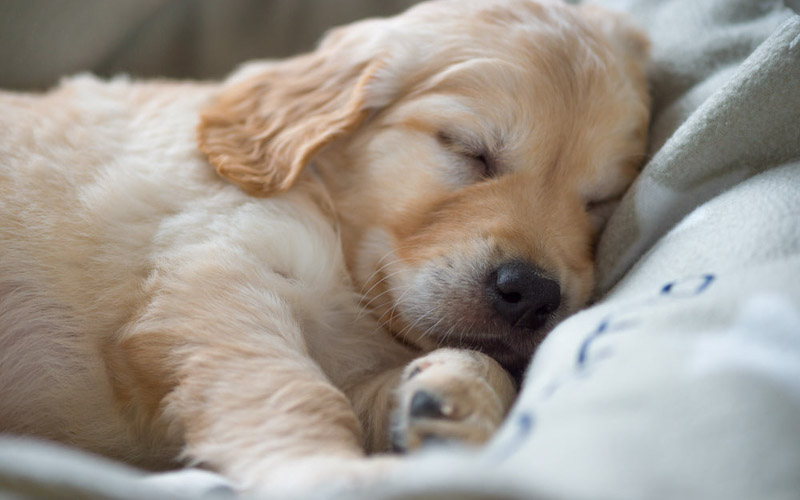
Understanding when this milestone can be reached and how to help your puppy along the way is crucial for both their comfort and your peace of mind. Most puppies can sleep through the night without needing to pee by the time they’re 4 to 6 months old, but factors such as breed, size, and individual development can influence this timeline. In this article, we’ll explore the typical age range for achieving nighttime bladder control, what you can do to support your puppy’s progress, and how to manage this stage of their growth effectively.
1. Understanding Puppy Bladder Control
Puppy bladder control develops gradually, with most puppies gaining the ability to hold their urine overnight between 4 to 6 months of age. During the early months, puppies have very limited bladder capacity and need to be taken outside frequently, including at night. As they grow, their bladder muscles strengthen, and they can begin to go longer without needing to relieve themselves.
Several factors influence how quickly a puppy develops bladder control. Breed and size play a significant role—smaller breeds, with their smaller bladders, often take longer to sleep through the night without needing a potty break compared to larger breeds. Additionally, individual differences mean that not all puppies progress at the same rate; some may take longer to reach this milestone due to temperament, health, or environmental factors.
A helpful guideline for estimating how long a puppy can hold its pee is that they can typically control their bladder for about one hour per month of age. For example, a 3-month-old puppy should be able to hold their urine for approximately three hours, though this may vary. By understanding these factors, owners can manage their expectations and create a schedule that supports their puppy’s bladder control development.
2. When Puppies Typically Sleep Through the Night
Most puppies can begin to sleep through the night without needing a potty break between 4 to 6 months of age. By this stage, their bladder muscles have developed enough to hold urine for longer periods. However, the exact timing can vary based on factors such as breed, size, and individual temperament. Larger breeds often reach this milestone sooner than smaller breeds, which may take longer to gain full bladder control.
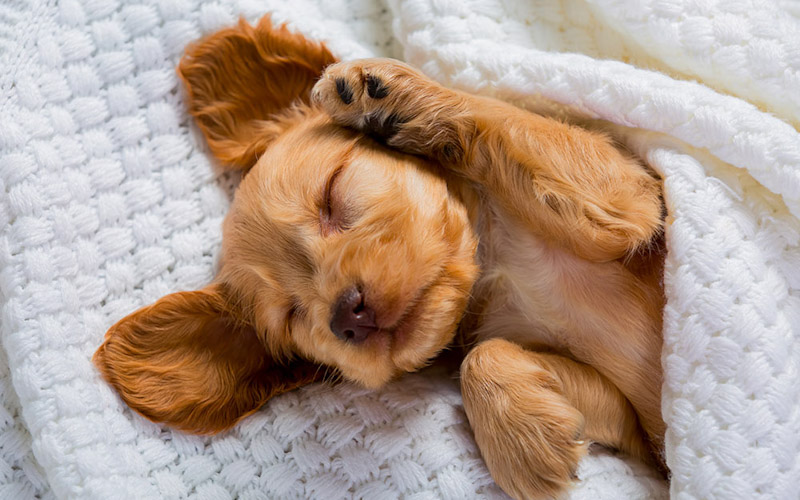
There are several signs that your puppy is ready to sleep through the night:
- Consistent daytime bladder control: If your puppy is no longer having accidents during the day and can go for several hours between potty breaks, they’re getting closer to making it through the night.
- Fewer nighttime accidents: If your puppy has been waking up less frequently to go outside and having fewer accidents in their crate or bedding, they’re likely improving their nighttime bladder control.
- Longer stretches between daytime potty breaks: Puppies who are able to hold their bladder for extended periods during the day are typically able to hold it for longer at night.
However, there are common misconceptions about this developmental stage. One of the biggest is expecting puppies to sleep through the night too soon. It’s unrealistic to assume that a very young puppy (under 3 months) can make it through the night without a bathroom break. It’s essential to be patient and understand that every puppy’s timeline is different, but most will eventually reach this milestone with consistent training and time.
3. How to Help Your Puppy Sleep Through the Night
Helping your puppy sleep through the night without needing frequent potty breaks requires patience and consistency. Establishing the right habits early on will set your puppy up for success as they develop bladder control.
Establish a Bedtime Routine
Creating a consistent bedtime routine is essential for helping your puppy adjust. Puppies thrive on structure, so sticking to a schedule will signal to them when it’s time to settle down for the night. Before bed, ensure your puppy goes out to potty to empty their bladder. This will reduce the likelihood of accidents during the night. Having a calm and quiet wind-down period will also help your puppy associate nighttime with rest.
Crate Training
Crate training is highly beneficial for bladder control because puppies instinctively avoid soiling their sleeping space. A crate provides a cozy, secure area where they can feel safe. Make sure the crate is the right size—just big enough for them to stand up, turn around, and lie down comfortably. Too much space may encourage them to pee in one corner and sleep in another. Place soft bedding and a favorite toy inside to create a comforting environment.
Limit Water Intake Before Bed
To prevent nighttime potty breaks, limit your puppy’s water intake a few hours before bedtime. Generally, cutting off access to water about two hours before sleep is sufficient. This ensures they stay hydrated but aren’t overloading their bladder right before bed.
Exercise and Stimulation
A tired puppy is more likely to sleep through the night. Ensure they get plenty of physical exercise and mental stimulation during the day. Regular walks, playtime, and interactive toys will help expend their energy, making them more likely to settle down and sleep soundly throughout the night.
By following these steps, you’ll be supporting your puppy’s development and encouraging them to reach the point where they can comfortably sleep through the night without interruptions.
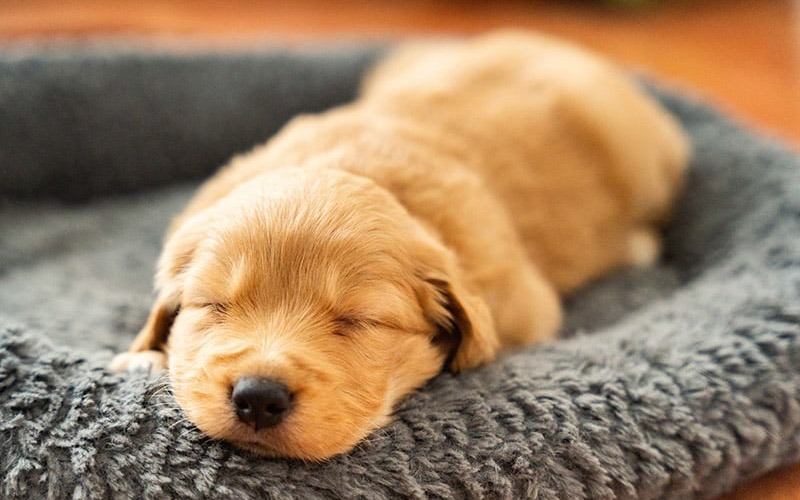
4. Troubleshooting Common Issues
Even with proper training, some puppies may struggle to hold their bladder through the night. Understanding how to handle setbacks is key to long-term success.
What to Do if Your Puppy Can’t Hold It
Accidents can happen, especially in the early months. It’s important not to punish your puppy for accidents, as they won’t understand the connection and it could lead to fear or anxiety. Instead, clean the area thoroughly to prevent lingering smells that might encourage repeat behavior. Stay patient and consistent with your training. Gradually increase the time between potty breaks as your puppy’s bladder control improves.
Nighttime Whining
Puppies often whine at night, and it’s crucial to determine when it’s due to discomfort versus seeking attention. If your puppy has just been outside to potty, they may be testing boundaries. In this case, calmly ignore the whining to avoid reinforcing the behavior. However, if the whining persists or seems urgent, it’s worth taking them out briefly to ensure they’re comfortable.
Dealing with Setbacks
Puppies may experience setbacks during teething or growth spurts. These phases can temporarily affect bladder control. Be flexible with your training during these times, and adjust your expectations. Reintroducing more frequent potty breaks may help prevent accidents until the puppy is back on track. Staying patient through these developmental phases will ensure long-term success.
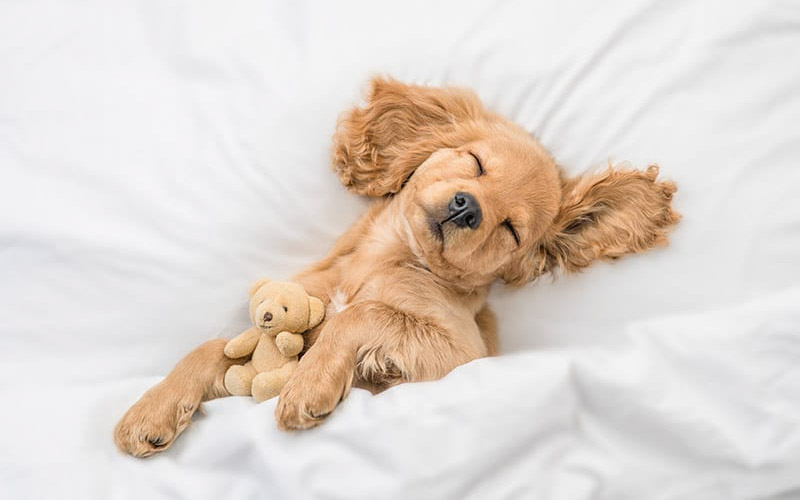
5. Long-Term Benefits of Nighttime Bladder Control
Achieving nighttime bladder control for your puppy brings significant long-term benefits for both your puppy and yourself. Improved sleep is one of the most immediate advantages. Once your puppy can sleep through the night without needing bathroom breaks, both you and your pet will enjoy more restful, uninterrupted sleep. This improved rest contributes to better overall health and well-being for both parties.
Strengthening routine and trust is another benefit. Consistent bedtime routines and successful training foster a deeper bond between you and your puppy. As your puppy learns to trust the predictability of their schedule, they become more secure and confident in their environment.
Finally, early training in bladder control can help prevent future behavioral issues. Puppies that learn to manage their bladder effectively are less likely to develop problems such as separation anxiety or inappropriate urination as they grow older. Establishing good habits early lays the foundation for a well-adjusted, well-behaved adult dog.
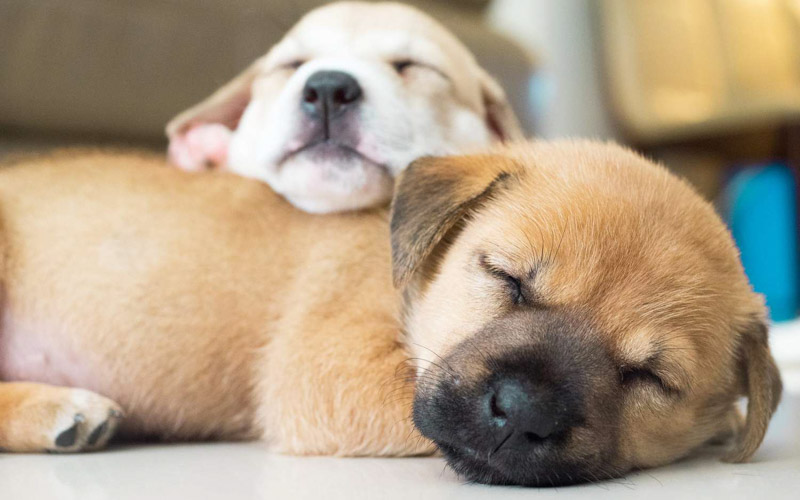
Conclusion
In conclusion, understanding when your puppy can sleep through the night without needing a potty break is essential for a smoother transition to nighttime routines. Typically, puppies reach this milestone between 4 to 6 months of age, though individual factors like breed and size can influence this timeline. By establishing a consistent bedtime routine, utilizing crate training, limiting water intake before bed, and ensuring ample daytime exercise, you can effectively support your puppy’s development of nighttime bladder control.
Patience and consistency are key. Accidents and setbacks are a natural part of the process, and addressing them with understanding and flexibility will help your puppy adjust more successfully.
As you continue with your training, remember that the benefits of achieving nighttime bladder control extend far beyond just better sleep. A well-rested puppy and owner, a strengthened bond, and prevention of future behavioral issues are just a few of the rewards.
If you have any concerns or need more personalized advice, don’t hesitate to reach out to a veterinarian or a professional dog trainer. Share your experiences and questions in the comments below, and stay committed to guiding your puppy through this important developmental stage.